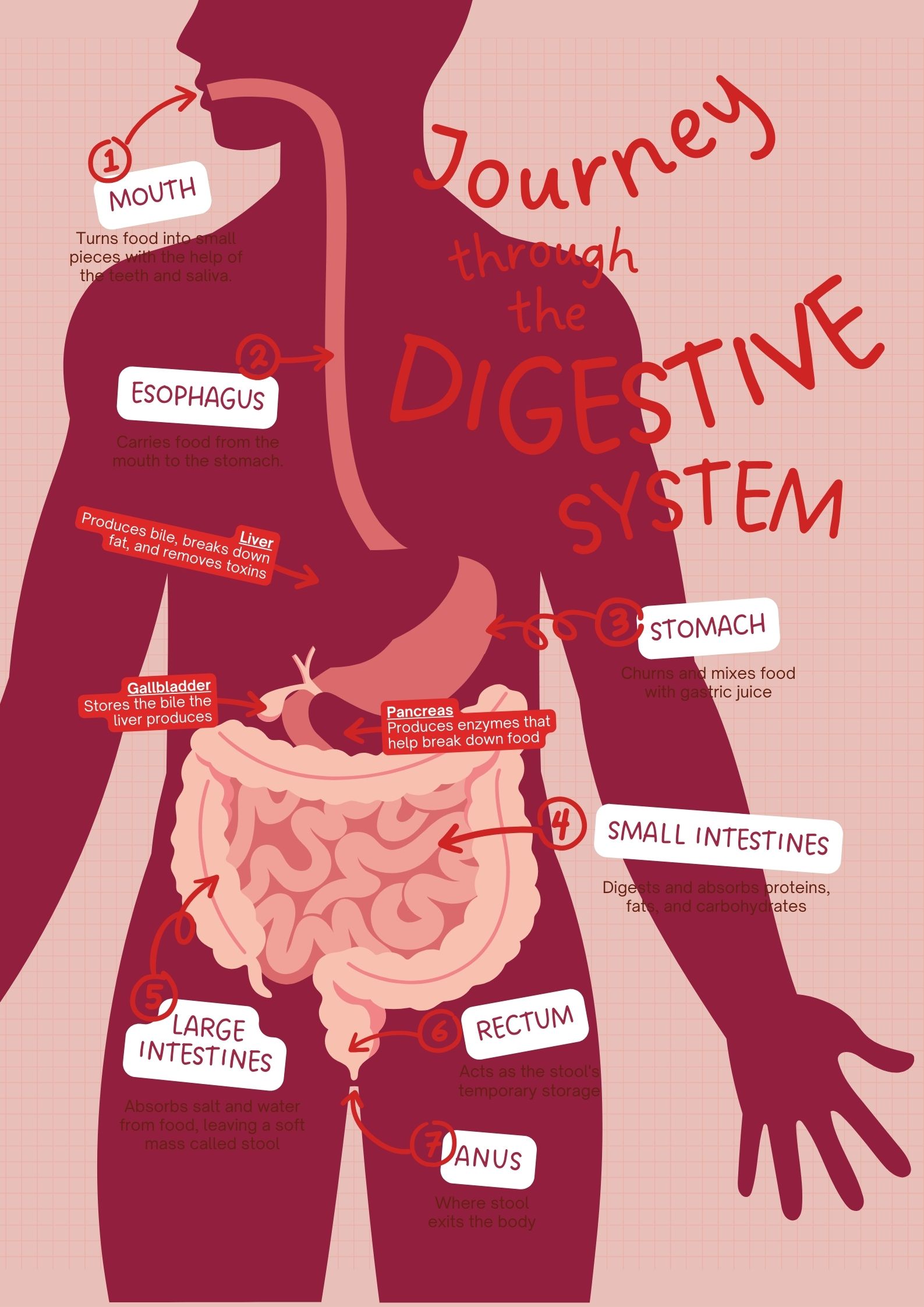Kathmandu- The human digestive system is a remarkable and intricate network that plays a crucial role in our overall well-being. From the moment we take that first delicious bite, a series of fascinating processes unfold within our bodies to break down food, extract essential nutrients, and eliminate waste. In this blog, we’ll embark on a journey through the various stages of the digestive system, exploring the wonders that occur from the mouth to the stomach, small intestine, and beyond.
The Mouth: Gateway to the Digestive Wonderland
Our digestive adventure begins in the mouth, where the magic of mastication takes place. Teeth, with their different shapes and functions, collaborate to break down food into smaller, more manageable pieces. The tongue and saliva join the ensemble, helping to form a mushy mixture called chyme.
Saliva, a watery superhero secreted by salivary glands, contains enzymes like amylase that initiate the breakdown of starches. As we savor the flavors of our meal, an essential process called digestion kicks off, setting the stage for the next act in our digestive journey.
Swallowing and the Esophagus: The Smooth Slide to the Stomach
Once the food is thoroughly chewed and mixed with saliva, the process of swallowing commences. This seemingly simple action sets off a chain reaction, propelling the chewed food through the esophagus – a muscular tube connecting the mouth to the stomach.
As the bolus of food slides down the esophagus, it encounters rhythmic contractions known as peristalsis. This coordinated muscular dance ensures a smooth journey to the stomach, demonstrating the digestive system’s efficiency. Despite its simplicity, the journey down the esophagus is a critical phase in our digestive saga, laying the groundwork for the grand finale – the stomach.
The Stomach: A Gastronomic Playground
Enter the stomach, a muscular organ resembling a pouch where the real gastronomic festivities unfold. Once the food reaches this acidic haven, gastric juices containing hydrochloric acid and enzymes like pepsin go to work, breaking down proteins into simpler components.
The stomach’s churning motion further transforms the chewed food into a semi-liquid mixture called chyme. This process not only aids in digestion but also acts as a protective barrier, preventing harmful bacteria from wreaking havoc in our digestive wonderland.
The Small Intestine: Nutrient Extravaganza
The small intestine takes center stage in the digestive spectacle, absorbing the nutrients released during the stomach’s performance. Divided into three segments – the duodenum, jejunum, and ileum – the small intestine is equipped with tiny finger-like projections called villi.
Villi increase the surface area of the small intestine, creating an ideal environment for nutrient absorption. Here, enzymes from the pancreas and bile from the liver join the party, ensuring that carbohydrates, fats, and proteins are broken down into their smallest components. These nutrients are then absorbed through the villi and transported to various parts of the body to fuel our everyday activities.
The Colon: Wrapping Up the Adventure
As the chyme makes its way through the small intestine, the remaining indigestible substances and water enter the colon, the final act in our digestive tale. The colon’s primary role is to absorb water and electrolytes, transforming the chyme into solid feces.
Friendly bacteria in the colon also contribute to the fermentation of certain substances, producing gases and additional nutrients. Finally, the formed feces move towards the rectum, signaling that our digestive expedition is coming to an end.
The human digestive system is a masterpiece of complexity and coordination. From the initial crunch in the mouth to the nutrient absorption in the small intestine and the final curtain call in the colon, each stage plays a vital role in ensuring our bodies receive the nourishment they need. Understanding this intricate process allows us to appreciate the marvels happening within us every time we enjoy a meal.

